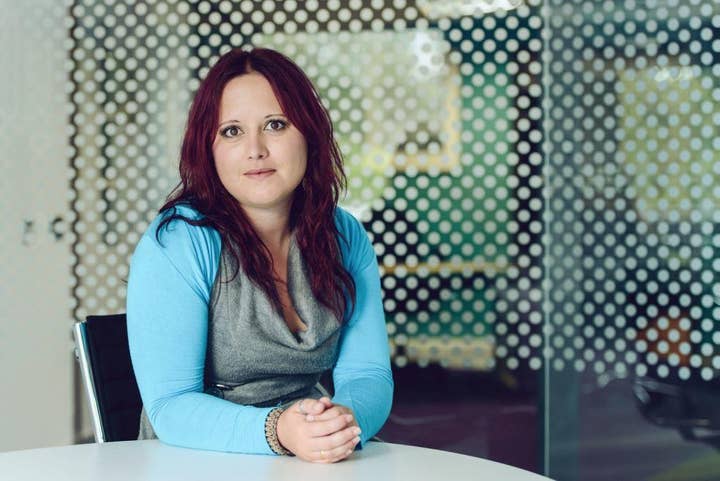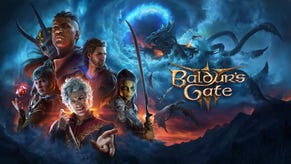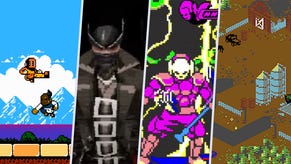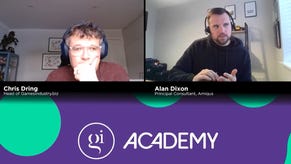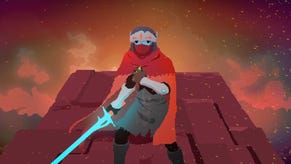Onboarding: How to set new starters on the road to success
Ella Romanos details her process for onboarding new recruits so they receive the support and structure they need
As COO of Fundamentally Games, this is the second time I've been responsible for building a team from the ground up.
I'm always learning and looking to improve how we support our team, often driven not only from my own experiences, but also by ideas from other companies and individuals, as well as feedback and suggestions from our team. Over the last year we've grown from five to 11 people, and so while we're still a very small team, onboarding of new team members has been a key aspect of my role.
We're also a completely remote team, and while a solid onboarding process is as important for in-person teams as remote ones, the latter potentially requires more proactive organisation to ensure that a new team member feels they are part of a team and has the support and structure they need.
Recruiting
Onboarding of a new team member starts before they even join us. The recruitment process is an opportunity to start getting our potential new team members familiar with the company, the team, and how we work. Foreshadowing what the role will involve day-to-day will help not only to ensure we hire the right person, but also help new team members to get onboarded more quickly and effectively once they start in their new role.
While we treat the entire recruitment process as an onboarding process, some specific activities that we've implemented are:
- The last stage of the interview process is a 'play a game' session with three or four of our existing team, where our team chooses a party-type game (usually a Jackbox game) to play together, where they also get an opportunity to chat. Usually, we choose people who will be working closely with the candidate, but we specifically don't include the interviewers or the final decision makers. The current team provides feedback from the session that is taken into consideration in the final decision making, and the relationship between the candidate and the team is established before their first day.
The recruitment process is an opportunity to start getting our potential new team members familiar with the company, the team, and how we work
- We share our company handbook as part of the employment contract process, so that the candidate can understand our expectations, values and approach.
- Once employment contracts are signed, we schedule a call with the new team member to set expectations for the onboarding process going forward, in particular explaining what will happen on their first days, weeks and months in their new role. We talk through the basics, and also share our 'onboarding checklist' which details the process and expectations over their first few months. We also ensure they have what they need to get started, seeing as we're a remote team, this means agreeing what equipment they need and what flexible working hours may apply.
- Internally, we plan initial onboarding tasks for the first couple of weeks, at least, and agree on how the candidate will be supported in delivering those tasks.
- Finally, we send a welcome gift to the candidate, to arrive shortly before their first day. This isn't a corporate welcome pack, rather we like to send a personal (usually edible!) gift that welcomes them to the company.
- We also optionally invite the candidate to play some of our current games in progress, either on their own or to join team play sessions, to familiarise themselves with our projects.
Day one
By day one, the goal is that the new team member already knows what to expect from their first day, has whatever equipment they need, and knows at least some of the team.
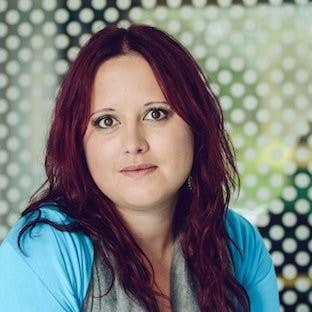
We use the onboarding checklist that we provided during the recruitment stage, to provide structure with clear expectations and goals. For us, as a remote team, day one looks something like this:
- Team standup -- get introduced to the whole team and listen in to the meeting.
- Get the boring stuff out of the way -- get setup on all the systems, from email to Slack, and go through the reporting and communication requirements, from daily standups to daily reports.
- We deliver a short presentation about the company, looking at what we do and how we do it, and how their role fits into that and the team. We don't expect them to remember everything, as that will take time, but it's a starting point!
- Assigned first tasks -- we like to set some initial tasks that take the new team member through the first few days, or potentially weeks, to give some structure and direction in that initial period. These could be training specific tasks, particularly for more junior members, or could be specific tasks diving straight into projects. Whatever the tasks are, the key is to ensure the team member understands how they can ask questions, what support is in place, and what is expected in terms of timing and scope of deliverables.
Week one
During week one, the focus is on getting the new team member established with the daily routine, starting to build understanding of their role and the company, and progressing with their initial assigned tasks, with a focus on giving feedback and support as they progress.
Some key activities that we include during the first week are:
- Regular check-ins, aside from meetings, to discuss specific tasks. We ensure that we have a general chat one or twice during the first week, to ensure the new team member gets the opportunity to ask any general questions.
- Encourage 'coffee morning one-to-ones' between the new team member and the rest of the team. This is particularly important for team members who may not work together directly. They won't all get done in week one, but we like to ensure at least a couple are done, and others are set up for the coming weeks.
- Start joining in specific meetings for projects or tasks that the team member is involved with, whether this is a weekly marketing call, or regular call with a dev team on a specific game.
Month one
We always assume that it will take a minimum of one month for a team member to find their feet, and it can take as long as three months.
We always assume that it will take a minimum of one month for a team member to find their feet, and it can take as long as three months
At a minimum, we expect the first month to be a time for the new team member to familiarise themselves and together with them, we use this time to build an understanding of their role, expectations and targets. Alongside this, key activities include:
- First social event: as we're remote, this is usually an evening Zoom party, where we chat or play games.
- Special interest groups: we encourage all team members to get involved in special interest groups. Mostly these are casual groups on Slack, but as our team grows we're looking to build out the number of groups and the activities involved.
- Personal development plan: During the first month, we set up the new team member's PDP. This plan starts with the specific role responsibilities (from their job specification), with a focus on what success looks like (what our expectations are, and what the team member's targets are), what support the team member needs to achieve them, and expected timeline. The second part of the PDP is to explore the team member's own goals, for the role and their career, and what support we can give to those as well.
The first three months and beyond
Usually, the first three months are a probationary period, so the end of the third month is a key milestone. We use the PDP to ensure that the team member knows what is required for them to succeed in this period, and we usually review the PDP at least once during these first three months.
After that, we review the PDP every three months, forever -- this does take up a lot of our time, but we find we get huge value out of it and we believe our team does too, as it allows us to keep them moving forward in their role and career and gives them an opportunity to discuss any questions or concerns.
I should note that one key thing about PDPs is that we never save bad news or criticism for these sessions -- any issue is raised at the time it occurs, because we want PDPs to be a positive experience and not something that our team worries about.
Four times a year we hold a strategy day for the team, where we explore different aspects of the business, and get [their] input on improving how we do things
Other key activities include:
- FG knowledge sharing: We do a lot of work to support developers, and build knowledge, outside of our direct projects. This includes our FG Discord community, monthly webinars and articles, and more. We explore with each team member if and how they would be interested in getting involved with this.
- Strategy days: four times a year we hold a strategy day for the team, where we explore different aspects of the business, and get the team to input on solving challenges and improving how we do things.
- In-person meetings: Where possible, we like to occasionally meet in person, usually in London. Due to COVID, this has not yet been established as a regular event, but we hope that at some point we can do this a few times a year.
Onboarding is just the start of the journey you will have with each team member, and it should start from the first moment you meet them, and really, it never ends. Your primary responsibility as an employer is to create an environment where your employees can thrive in their role and in their career.
To achieve this, you need to put effort into providing a supportive, structured environment, where they know what is expected of them, they feel in control of their role and career, and understand the journey they are on with you -- and this applies whether you are a team of three or 300.
Ella Romanos is COO and co-founder of living games publisher Fundamentally Games. Originally a programmer, she has 14 years of experience building and managing game studios, teams and projects.
